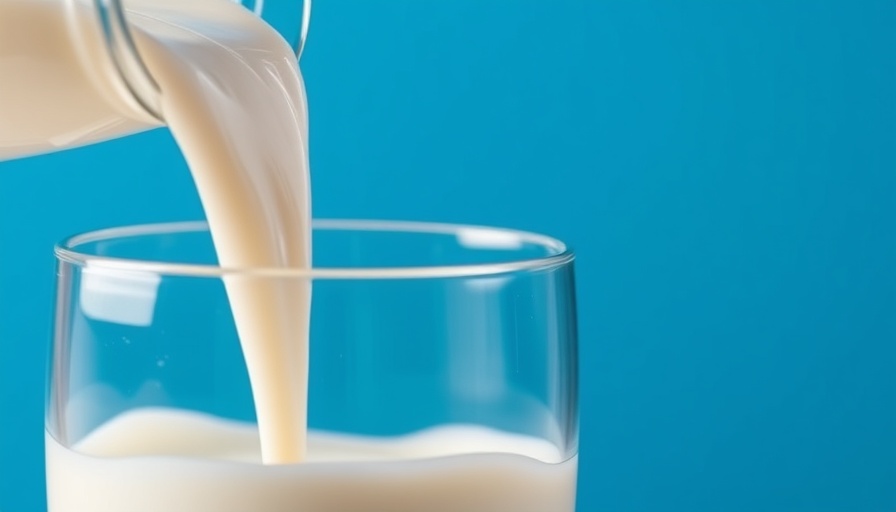
Exploring Dairy: The Case for Cow's Milk Over Oat Milk
As the popularity of plant-based alternatives rises, many are questioning whether cow's milk holds its ground against oat milk. This debate is not just about taste but revolves around nutrition, health benefits, and lifestyle choices. Here’s why cow's milk may still reign supreme in certain contexts.
Nutritional Powerhouse: Cow's Milk's Benefits
First and foremost, a key reason to consider cow's milk is its rich nutrient profile. Cow's milk is packed with essential vitamins and minerals, including calcium and vitamin D which are vital for bone health. While oat milk can offer some nutrients, it often lacks the same level of protein—much needed in a balanced nutrition routine. For those on a balanced nutrition plan focusing on whole foods diet, cow's milk serves as a robust source.
Protein Punch: Building Blocks for Your Body
One of the standout features of cow's milk is its protein content. With about 8 grams of protein per serving, it is an excellent choice for those looking to build muscle, improve gut health, and foster overall wellness. In contrast, oat milk generally contains less protein, potentially making it less ideal for individuals seeking functional foods for muscle maintenance and recovery.
Heart Health Considerations: What You Need to Know
When it comes to heart health, cow's milk contains beneficial compounds that may contribute to a heart-healthy diet. Some studies indicate that the saturated fats in dairy can increase levels of good HDL cholesterol, while excessive plant oils may not have the same effects. For health enthusiasts focusing on anti-inflammatory diets or looking for the best foods for heart health, cow's milk could be a smarter choice.
Weight Management: Feeling Full and Satisfied
For those navigating their way through weight management, cow's milk can promote satiety better than oat milk. The high protein content can help quell hunger and reduce overall calorie intake throughout the day, making it a valuable ally in your journey to maintain a healthy lifestyle.
Final Insights: Choose What Works for You
Ultimately, the choice between cow's milk and oat milk varies among individuals based on dietary needs and personal preferences. If you’re open to discussing personalized nutrition strategies, feel free to reach out. Call us at 984-238-6164 or email us at tom@mywellnesstrain.com to explore more about how you can make informed food choices for your health and longevity.
 Add Row
Add Row  Add
Add 




Write A Comment